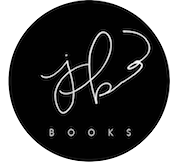Some of the links below are affiliate links, which means that if you choose to make a purchase, I will earn a commission. This commission comes at no additional cost to you.
Whether you are publishing traditionally or self-publishing, you should have an outside editor take a look at your work. To make their job easier, and to help you get more for your money, you need to edit your work on your own first.
Self-Editing for fiction writers can be tricky. For starters, we love our own work so darn much. Otherwise, why would we be writing it? And we picked our words/characters/scenes for a reason, which makes it hard for us to make the tough cuts.
So how do we do an effective job of self-editing? I've got a few tips for you.
Edit Your Own Book by Reading Like Your Audience
As I am going through my own book, I try to read it as if I am my ideal reader. (P.S. My ideal reader is a twenty-something girl who spends her free time on Hello Giggles, sings regularly in conversation and tends to wears a lot of pink. Comment below if you're any of the above.)
Anyway, this helps me get out of my own brain for a second and focus on what's actually working/not working in the story.
This tactic really works if you have a specific person in mind. For instance, let's say I decide to read a chapter through the eyes of my sister. Since my sister and I think differently, I'm able to pick up on issues I wasn't able to before, by asking the questions she might ask.
Where I look at something emotionally, she might come from a more logical standpoint. It's a right brain/left brain thing. It's important to avoid assuming that everyone is going to interpret the story as you would.
Kill Your Darlings and Don’t Be Precious with Your Work
Editing is hard. It's not going to be a simple, "I skimmed it, all done!" You can read more about my editing technique here. In the first round of macro edits, this is where you're going to find the big, plot-shifting changes.
If you read through your story and think to yourself, "I really don't think that character is serving a big enough purpose," then you should make the cut. Even if he/she is inspired by your late, great beloved puppy.
When it comes to making serious changes, your mind needs to focus on the greater good. You need to ask the tough questions:
Does this serve the overall story?
Does this further the character development?
Is this scene distracting?
Chances are if you're seeing something wrong, your reader will too.
Proofread Like a Professional
Proofreading is SUPER tough, but even more so when you are checking your own work. By this point, you have read your manuscript dozens of time, so you truly need a fresh pair of eyes.
Recently, I came across Grammarly, which has saved me a massive amount of time. Grammarly is a free proofreading tool that I added as a plug-in on my browser. This way, it can easily proofread everything I type from blog posts to social media posts to my manuscript!
I can also upload my draft directly into Grammarly’s dashboard and check for errors there. This tool has been a life-saver for me. I find it to be incredibly accurate and another level of editing that makes my work shine! I highly recommend it.
Hire a Book Editor and Don’t Submit a Sloppy Draft
You finished a book. That's pretty freaking cool. And I'm sure you're just dying to send it off to editing, pick your cover designer and have all of your friends read it. (I'm saying this from experience, obviously.)
But don't forget to take it slow. Don't send your work to an editor until it's practically glowing. You wouldn't turn in a C paper, knowing that you're capable of an A, would you? No. So don't do this with your book.
Spend hours, days and weeks giving every last word some serious thought. Then, when you feel you've done your best, send it off.
Need a little extra help?
DISCUSSION TIME: What are your best editing techniques? What are your biggest pitfalls?


